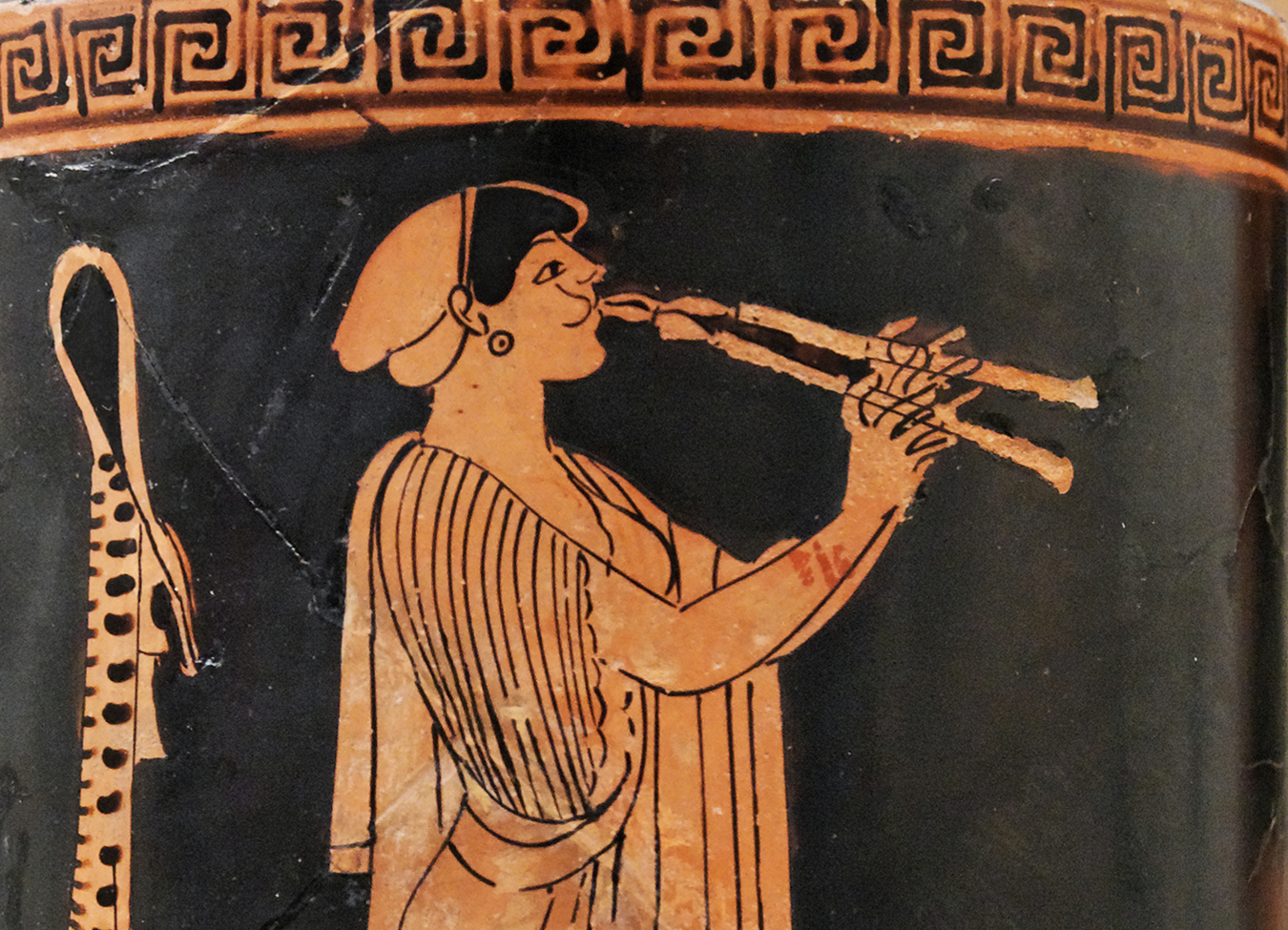Plato’s Last Night
Further deciphering of the carbonized Herculaneum papyri, which recently produced information about Plato’s burial place (publicized last week), also detailed the philosopher’s final hours, according to Graziano Ranocchia (Pisa), who is leading one of the teams working on using technology to “read” the burnt, un-unrollable scrolls.

[Thracian woman playing the “aulos”, which is sometimes referred to as a “flute”]
In a groundbreaking discovery, the ancient scroll was found to contain a previously unknown narrative detailing how the Greek philosopher spent his last evening, describing how he listened to music played on a flute by a Thracian slave girl. Despite battling a fever and being on the brink of death, Plato—who was known as a disciple of Socrates and a mentor to Aristotle, and who died in Athens around 348BC—retained enough lucidity to critique the musician for her lack of rhythm, the account suggests.
A critic to the very end.
New information about Plato’s slavery has come to light as well:
The text also reveals that Plato was sold into slavery on the island of Aegina, possibly as early as 404BC when the Spartans conquered the island, or alternatively in 399BC, shortly after Socrates’ passing. “Until now it was believed that Plato was sold into slavery in 387BC during his sojourn in Sicily at the court of Dionysius I of Syracuse,” Ranocchia said.
Having been buried in lava in the explosion of Mt. Vesuvius, the texts are read via a combination of coding, computer vision, and machine learning. (Background here.) They reportedly belonged to Julius Caesar’s father-in-law, and are believed to have been written by Philodemus.
For more on Plato’s dislike of the Thracian “flute” (probably, rather, a double-reeded instrument known as an aulos) and what this may have to do with women, see this post by philosopher Robin James (UNC Charlotte).


While this textual discovery in the Herculaneum papri is very exciting, I think we ought to be cautious about the accuracy of this report about Plato. It is very difficult to separate historical facts about Plato’s life from myths and legends because of his subsequent celebrity. The most reliable method we have for determining the accuracy of any report about Plato’s life is whether various and diverse reports agree. There are no reports of Plato being sold into slavery in 404 or 399 apart from this one; and there are many reports the corroborate 387 as a date when Plato was sold into slavery by Dionysius I. This, of course, doesn’t mean that the report in the papri is false (it too must be admitted as evidence). However, on balance, the existing evidence is clearly against this report.